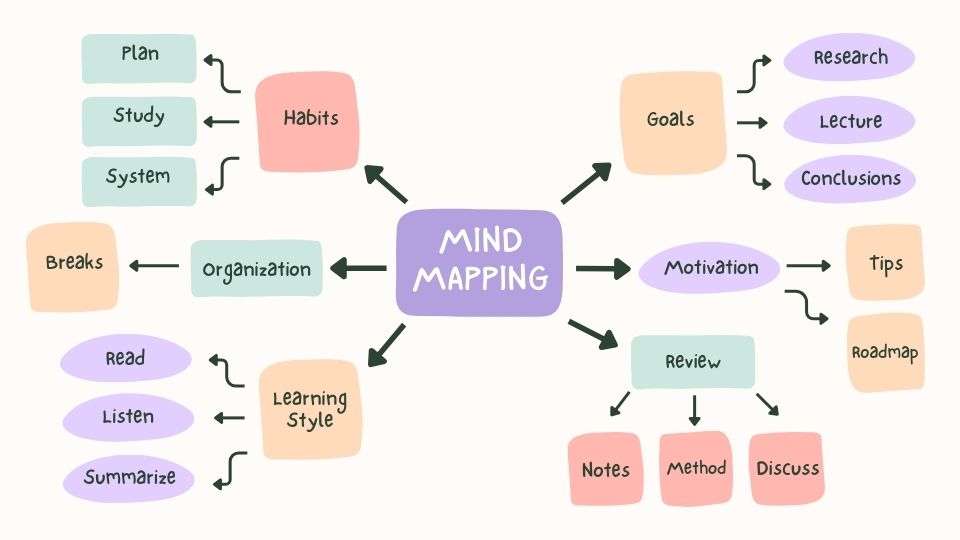How To Ace Your Exams, Unlocking the
Secrets to Exam Success
As the clock ticks down to exam day, the pressure mounts.
The library becomes your second home, and the endless sea of notes seems to
taunt you with its complexity. But fear not, intrepid learner, for acing your
exams is not a feat reserved for the chosen few. It’s an art form that can be
mastered with the right techniques and a strategic approach.
In this guide, we’ll unveil the tried-and-true methods that
can transform even the most daunting exams into opportunities for triumph. From
mastering the material to honing your test-taking strategies, we’ll walk you
through a comprehensive plan that ensures you’re not just prepared, but poised
to excel. So grab your highlighters and power up your laptops. It’s time to
conquer those exams with confidence!
Understand the Exam Format
Before you begin studying, make sure you understand the
format of the exam. Is it multiple-choice, essay-based, or a combination of
both? Knowing the format will help you tailor your study strategy accordingly.
Create a Study Schedule
Time management is crucial when preparing for exams. Create
a study schedule that breaks down your study material into manageable sections
and allocate specific times to study each section. Keep in mind that you need
study breaks if you need to study effectively. Stick to your schedule as
closely as possible.
Find a Productive Study Environment
Your study environment can significantly impact your
productivity. Find a quiet, comfortable place with minimal distractions where
you can focus on your studies. Ex; Library, park, Coffee shop or Outside if you
like some adventures.
Use Study Aids
Flashcards: Create flashcards for key terms, definitions, and concepts. They’re great for quick, repetitive review and can be especially useful for memorizing facts.
Summaries: Write summaries of each chapter or topic you study. This helps reinforce your understanding and makes it easier to review later.Mind Maps: Use mind maps to visually organize information. They can help you see the connections between different concepts and improve your recall.
Practice Tests: Take
practice tests under timed conditions. This will help you get used to the
format of the exam and identify areas where you need more practice.
These can be incredibly helpful. They can aid in
memorization and give you a sense of what to expect on the exam.
Take Regular Breaks
Studying for long periods without breaks can lead to
burnout. Take short, regular breaks to rest your mind and return to your
studies refreshed.
Pomodoro Technique: Use the Pomodoro Technique, which
involves studying for 25 minutes and then taking a 5-minute break.
Move Around: During your break, get up, stretch, or walk
around to get your blood flowing.
Switch Scenery: If possible, change your environment during
your break to give your mind a rest from your study space.
Avoid Screens: Try to avoid looking at screens during your
break to give your eyes a rest.
Relaxation: Engage in a relaxing activity like deep
breathing, meditation, or listening to music.
Try out these will improve your concentration, reduce stress
and increase productivity.
Stay Healthy
Balanced Diet: Eating a balanced diet provides the energy and nutrients your brain needs to function optimally. Include plenty of fruits, vegetables, lean proteins, and whole grains in your meals.
Hydration: Keep hydrated with water throughout the day. Dehydration can lead to fatigue and decreased cognitive function.
Exercise: Regular physical activity can improve mood, reduce stress, and enhance brain function. Even short walks or stretching can make a difference.
Sleep: Aim for 7-9 hours of quality sleep each night. Sleep is crucial for memory consolidation and cognitive processes.Mental Health: Take care of
your mental health. Practice stress-reduction techniques like meditation, deep
breathing, or yoga.
By prioritizing your health, you’re setting yourself up for
success not just in exams, but in all areas of life. Remember, a healthy body
houses a healthy mind!
Understand the Material
Active Learning: Engage with
the content actively by asking questions, participating in discussions, and
teaching the material to someone else.
Conceptual Frameworks: Try
to understand how different concepts are related and build a framework that
connects them.
Practical Application: Apply
what you’ve learned to practical examples or case studies. This can help
solidify your understanding.
Seek Clarification: If
there’s something you don’t understand, don’t hesitate to ask your teacher,
tutor, or peers for clarification.
Review Regularly: Regular
review helps reinforce your understanding and keeps the material fresh in your
mind.
By focusing on understanding rather than rote memorization,
you’ll be better equipped to handle the complexities of exam questions and
real-world applications. Remember, knowledge is power, but understanding is the
key to unlocking it.
Practice Past Papers
If available, practice with past exam papers. This will help
you familiarize yourself with the types of questions asked and the examiners’
expectations
Familiarize with Exam Format:
Past papers give you a clear idea of the exam format, types of questions, and
the marking scheme.
Identify Knowledge Gaps: By
attempting past papers, you can identify areas where you need further study or
clarification.
Time Management: Time
yourself while doing past papers to get better at managing the limited time
during the exam.
Review and Reflect: After
completing a past paper, review your answers. Look at the marking scheme or
model answers to understand where you can improve.
Simulate Exam Conditions:
Try to create an environment similar to the exam room when practicing. This can
help reduce anxiety on the actual exam day.
Form Study Groups
Studying with peers can provide moral support and help you
learn by discussing and explaining concepts to each other.
Stay Positive
Maintain a positive attitude towards your exams. Confidence
can significantly impact your performance.
On the Day Before the Exam
- · Review your notes and summaries but avoid cramming.
- · Prepare your exam materials (pens, pencils, calculator, etc.).
- · Get a good night’s sleep.
On the Day of the
Exam
- · Have a healthy breakfast.
- · Arrive at the exam location early.
- · Read through the entire exam paper first, if allowed.
- · Allocate your time wisely, spending more time on questions that carry more marks.
- · If you don’t know an answer, move on and come back to it later.
- · Review your answers if time permits.
After the Exam
- · Reflect on what went well and what could be improved.
- · Reward yourself for your hard work.
- · Avoid post-exam discussions about answers, as they can cause unnecessary stress.
Conclusion
Facing examinations successfully is about preparation, understanding, and mindset. By following these strategies, you can approach your exams with confidence and increase your chances of success. Remember, exams are just one part of your educational journey, and every challenge is an opportunity to learn and grow.
I hope this blog post helps readers in preparing for examinations with a calm and confident approach. Good luck!
References
Bord, D. (2008). Enhancing learning and exam preparation. APS Observer, 21. Andergassen, M., Mödritscher, F., & Neumann, G. (2014). Practice and repetition during exam preparation in blended learning courses: Correlations with learning results. Journal of Learning Analytics, 1(1), 48-74. Lukosch, S., & Schümmer, T. (2006). Making exam preparation an enjoyable experience. Interactive Technology and Smart Education, 3(4), 259-274. Strauss, R. H., Johnson, M. D., Kibler, W. B., & Smith, D. (1993). Keys to successful preparticipation exams. The Physician and Sportsmedicine, 21(9), 108-123. | |





.jpg)
Comments
Post a Comment